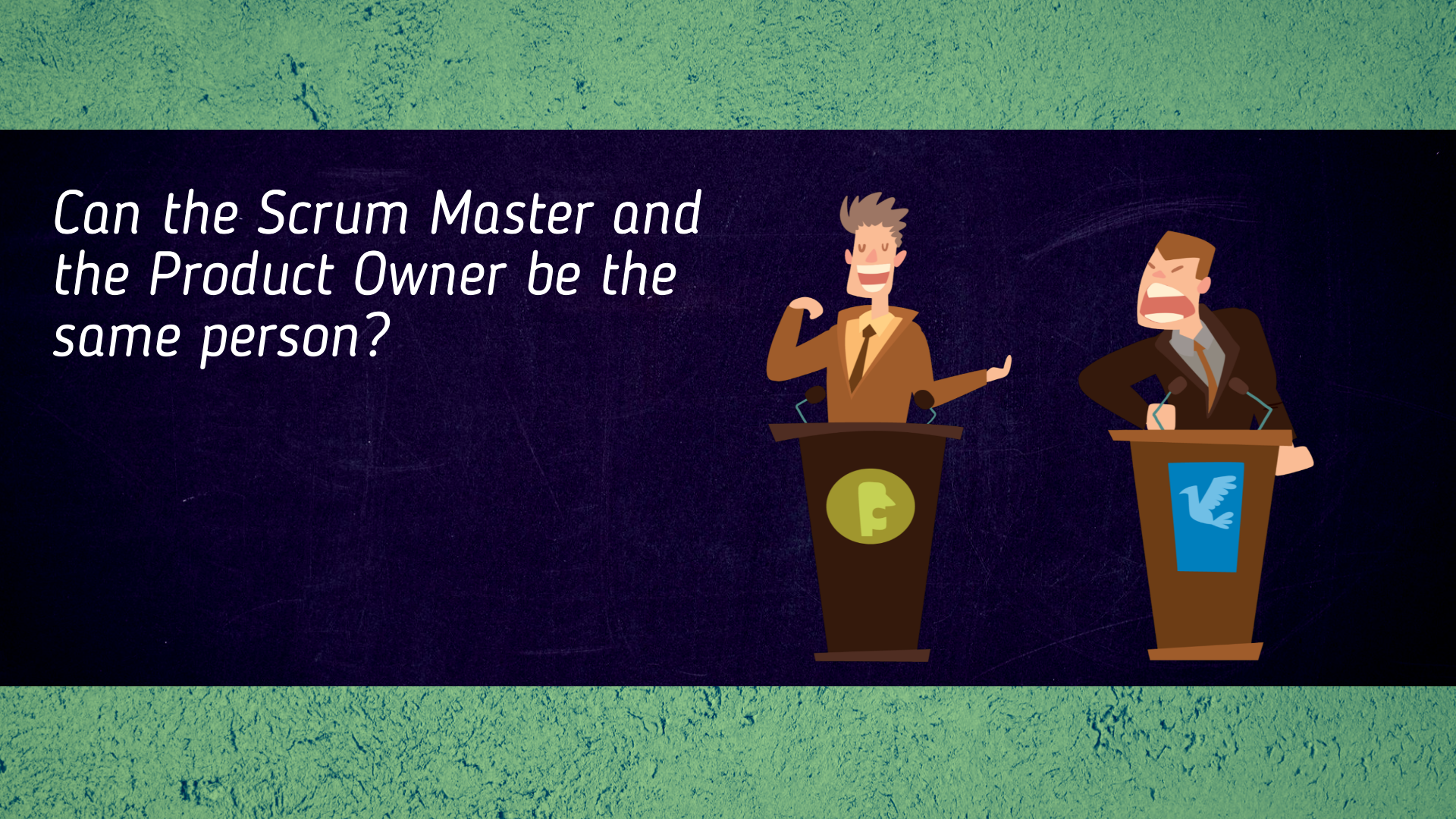
Can the Scrum Master and the Product Owner be the same person?
Most people ask me a question: Hey Venkatesh, can you tell me whether a person can simultaneously handle the responsibilities of a Scrum Master and a Product Owner?
We need to turn the pages of the Scrum Guide for a clear definition. The definition of a Scrum Team is:
“The Scrum Team consists of one Scrum Master, one Product Owner, and Developers.”
Scrum Guide is not very outright about whether a person can or should be allowed to play both roles in the scrum team. So let us focus on the core question now:
In my opinion, two different professionals should shoulder these two different roles. There are numerous valid reasons, and I discuss a few of those in this blog. The Product Owner invests time in determining what is required to be built or not be built. The process does not involve the Scrum team’s capabilities. His focus is prioritising the customers, unlike the focus area of a Scrum Master, whose focus is to ensure that the Scrum Framework is understood and enacted well by everyone in the Organisation.
The Product Owner determines what products are needed to be built, while the Scrum Master focuses on teamwork required to build the product.
Each role needs a dedicated commitment.
Think about this – the accountability associated with each of the roles would certainly be undermined when the same person manages the responsibilities of both. As per the Scrum Guide, a Product Owner is a person who maximises the value of a specific product. When the product cannot get customers’ attention in the target market or generate a set revenue goal, the Product Owner is held accountable. He has to counter all the issues and improve them.
On the other hand, the responsibility of a Scrum Master is purely establishing Scrum principles, as defined clearly by the Scrum Guide. The Scrum Master accomplishes this by making the Scrum team and the organisation understand the theories and standard practices of Scrum. (‘Scrum Guide’, 2020)
Hence, giving both roles to a single person would be a technical and organisational mistake, risking the individual premises of accountability.
Personality Types
Keep in mind that the skills required to play these professional roles are different in each case. It is practically not viable to expect the same or equivalent results from the person who shoulder the responsibilities of both functions. I do agree that there could be some overlaps. Still, each role has its own uniqueness.
There are some Natural Polarities
Lastly, I would like to add that there must be some natural tension between these roles. It is evident that these roles heavily determine the success of a particular product. But, it is the Scrum Master who has to oversee the impediments that crop up in a team from progressing the goal, while the Product Owner focuses on maximising the value.
When there is a nice balance and natural tension between these roles, a Product Owner can ask more from the team members. The Scrum Master is there to prevent any untoward or uncomfortable situations arising from such conditions. If you merge these roles, then you may not likely get the benefits of Scrum.
Destructive Tradeoffs
From my experience, there could be tradeoffs detrimental for the team and the organisation when a single person plays both roles.
Final Thoughts
Remember that SCRUM is never a specific methodology. You have to make the most optimal calls under a SCRUM framework. There are exceptions, which I have not covered in this blog post.
You can share your valuable experience by commenting.




